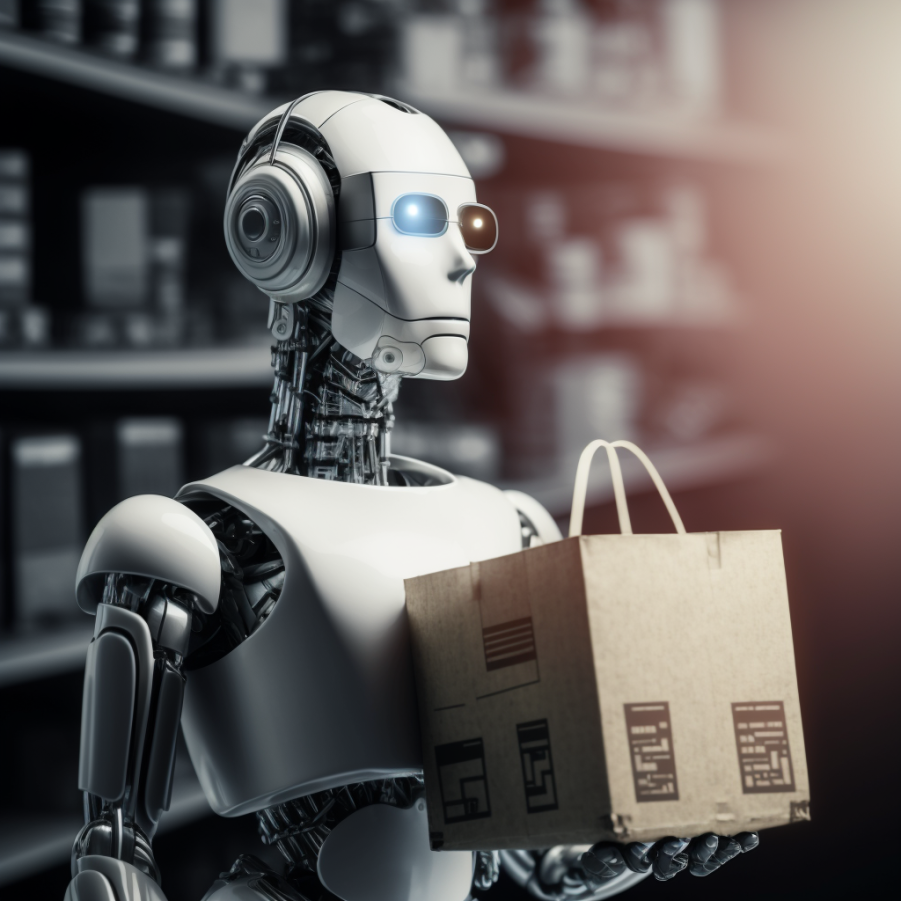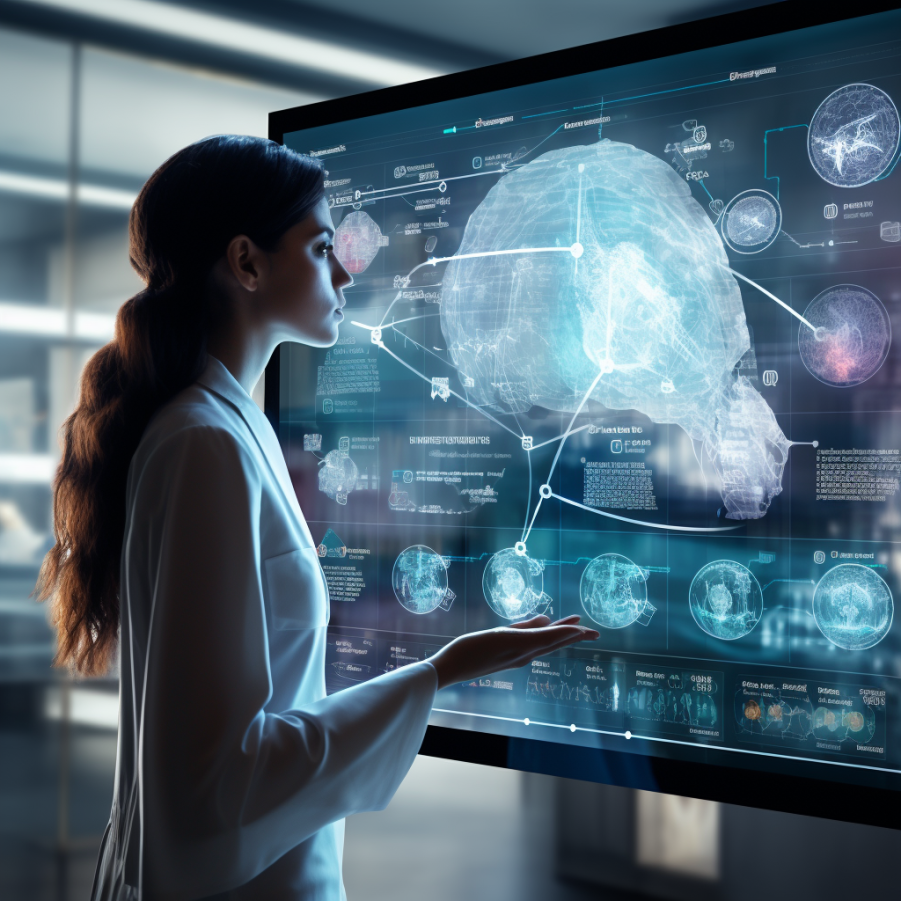
Jheeva Subramanian
AI in Ecommerce: Leveraging Artificial Intelligence for Business Growth
Introduction to AI in Ecommerce

+60122125160 +447951175840

Jheeva Subramanian
Introduction to AI in Ecommerce

Jheeva Subramanian
AI is being utilised by e-commerce enterprises to enhance their operations and achieve an advantage in a fiercely competitive market.

Jheeva Subramanian
Navigating through the world of Artificial Intelligence can feel overwhelming in this fast-paced era. This article explores the origins, different types, and practical applications of AI - Machine Learning, Deep Learning, Computer Vision and Natural Language Processing.

Protinus Group
In today's fast-paced and interconnected world, harnessing the power of technology is essential for businesses to thrive. At Protinus Group, we specialise in leveraging technology as a catalyst for growth. Our comprehensive approach helps organisations identify the right solutions, implement them with precision, and maximize efficiency and productivity.
.

Jheeva Subramanian
The incorporation of Artificial Intelligence (AI) has revolutionised the operations of businesses, including those in the ecommerce industry. With increasingly advanced AI-driven tools and applications, ecommerce enterprises can now leverage numerous possibilities to improve their customer service, streamline their processes, and boost profits.

Jheeva Subramanian
This article explores how AI helps in driving revenue growth and enhances customer satisfaction in the world of online retail, showcasing examples of AI implementations by industry giants such as Amazon, Sephora, Adidas, and Walmart.

Jheeva Subramanian
Discover how AI transforms Ecommerce by generating custom experiences, from product suggestions to personalised marketing, enhancing loyalty, sales and satisfaction.

Jheeva Subramanian
One of the toughest tasks faced by online retailers is delivering customised shopping experiences to customers. In the realm of ecommerce, AI-driven product suggestions and upselling have become indispensable tools that empower online retailers to boost sales and enhance customer delight. By using customer data effectively, AI algorithms can anticipate customers' preferences and offer tailored recommendations in a way that feels uniquely catered just for them.

Jheeva Subramanian
Efficiently managing inventory and customer demand is vital for e-commerce triumph. Embracing AI-powered systems for inventory management and demand forecasting is the game-changer. Discover how AI unlocks hidden patterns, optimises stock levels, slashes costs, and enhances customer satisfaction. Read an example showcasing transformative results and learn key takeaways for a seamless integration. Get ready to reshape your e-commerce strategy with AI intelligence

Jheeva Subramanian
AI's expanding role in ecommerce, spanning personalisation, pricing, fraud detection, and supply chains, offers substantial benefits but poses ethical concerns. This article explores crucial issues, including bias, transparency, privacy, and autonomy, emphasising best practices for responsible AI implementation. Ecommerce businesses must address bias through diverse, representative data, transparent algorithms, and regular monitoring. They must also prioritise data privacy, human oversight, and accountability to ensure an ethical and customer-centric AI approach.

Jheeva Subramanian
The Ecommerce landscape is undergoing a profound transformation thanks to the emergence of visual search and image recognition technologies. These game-changing advancements are offering customers a fresh and personalised approach to product discovery. Instead of relying solely on text-based searches, these technologies empower shoppers to use images for a more intuitive and efficient shopping experience

Jheeva Subramanian
Voice commerce, driven by virtual assistants, is revolutionising online shopping. Shoppers can now effortlessly purchase products using voice commands. This seamless experience boosts conversion rates and customer satisfaction, with 80% reporting satisfaction. Over 1 billion voice searches happen monthly, a number on the rise.

Jheeva Subramanian
In the current era of digital transformation, there is a growing emphasis on merging Artificial Intelligence and Internet of Things, resulting in what is known as "Artificial Intelligence of Things". This combination holds immense potential for enhancing IoT devices with advanced intelligence and improved functionality. Various industries such as healthcare, manufacturing, and transportation are already experiencing the advantages brought about by AIoT implementation. As AIoT continues to evolve, we can anticipate advancements in areas like smart homes, precision agriculture practices, immersive retail experiences, efficient energy management solutions, and the development of sustainable smart cities.

Jheeva Subramanian
The integration of AI and IoT, known as AIoT (Artificial Intelligence of Things), is transforming industries such as healthcare, manufacturing and transportation. Innovations in these sectors are revolutionising traditional practices, enhancing efficiency, safety, and business outcomes. AIoT's continuous evolution promises exciting future developments and trends across various sectors.

Jheeva Subramanian
Unlocking the Future of Hospitality: AIoT Revolutionises Guest Experiences. Discover how AIoT seamlessly blends AI and IoT to elevate personalisation, security, efficiency, and sustainability in the hospitality industry.
The concept of AIoT, which stands for Artificial Intelligence of Things, involves the integration of artificial intelligence technologies with the Internet of Things. This fusion facilitates communication and interaction between devices and systems, enabling them to analyse data and make informed decisions. The implementation of AIoT has brought about significant transformations in a wide range of industries, allowing businesses to operate more efficiently while improving the overall quality of life for individuals.

AIPRM
Artificial intelligence (AI) is a rapidly growing field with the potential to revolutionize many aspects of our lives, from how we work to how we travel and communicate. According to the latest artificial intelligence statistics, the global AI market is also an economic powerhouse, worth almost $455bn.
To understand the varying ways AI affects our lives today and the potential economic impacts, the AIPRM team has compiled an AI statistics report with the latest facts and stats from 2023 and beyond.